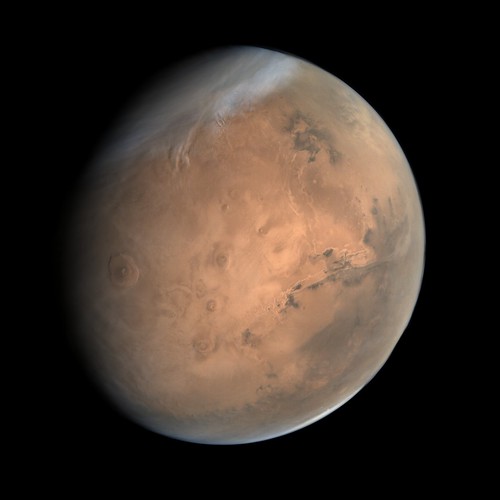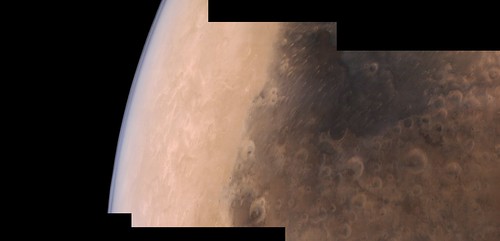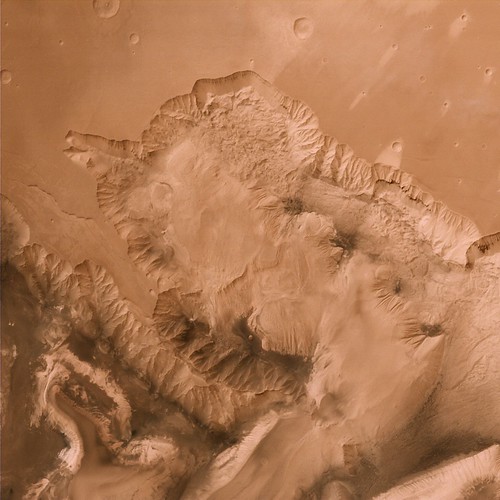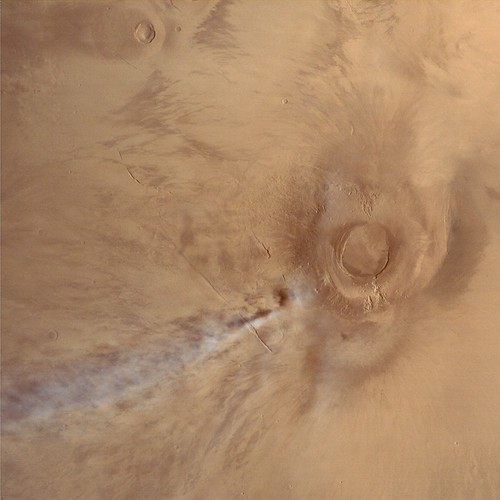MOM first year data released.... I'm still waiting to be approved, but others may like to check it out.
http://www.isro.gov.in/pslv-c25-mars-orbit...on-mom-released
Phil
Full Version: MOM archival data
MOM first year data released.... I'm still waiting to be approved, but others may like to check it out.
http://www.isro.gov.in/pslv-c25-mars-orbit...on-mom-released
Phil
http://www.isro.gov.in/pslv-c25-mars-orbit...on-mom-released
Phil
Thanks a lot Phil !
But : "MOM DATA IS AVAILABLE FROM PERIOD 24 SEP 2014 TO 23 SEP 2015 ONLY FOR REGISTERED USERS"
With warmest regards (and thanks so much for your daily maps, so much appreciated),
Olivier
Has anybody here been approved yet? I haven't.
I have! It took 24 hours. I've been in and looked at images on an image map and from lists of pictures in a lat-long box. The MOC camera gives 32 bit images and I'm still playing with an example. There is a nice PDF showing data coverage for various instruments.
Phil
Phil
Despite selecting responses from the registration dropdown menus for country, state, and city I receive the response that the selections are "not valid". Of course, I am not located in Europe or North America. Would-be registrants in those areas may have better luck.
I still haven't gotten access. I've tried logging in with the credentials I signed up with, and clicking on the "Login" button has no effect. I've tried registering with different credentials and after much waiting I get "ERROR in MOM Server!!Please Try Again!!" If anybody out there has managed to get access and is willing to share data and any available metadata with me, I'd appreciate it.
Well, rather bizarre... I did get in and successfully used map and text searches, just to check it out but without actually downloading anything except a browse image or two. But now I can't get in again.
Phil
Phil
I was able to log in with a friend's credentials and got a few documents out of the archive, but so far no data. The documents are attached.
Hey! I am suddenly able to get some data. I'm going to download as much as I can and try to host some of it. I am getting them one image at a time, so it's going to take a while to get the full set. For each image you download, you get the image in a 16-bit version and a 32-bit version, plus documentation and software, so each photo winds up being a 30-50MB download -- no wonder their servers are being hammered.
So here's the first MOM global image of Mars, taken September 28, 2014. No processing done to the image except levels adjustment to set the color of the south polar clouds to be white.
I've managed to download 150 other images so far, out of the 517 released to date.
I've managed to download 150 other images so far, out of the 517 released to date.
Here is a browse page to about 40% of the data, all that I managed to download today. As I write this, the September and October 2014 .IMG files are still uploading, so they're not all in place yet. I'll try to get to the rest of it when I can. Enjoy.
https://planetary.s3.amazonaws.com/data/mom/mom_mcc.html
https://planetary.s3.amazonaws.com/data/mom/mom_mcc.html
Look what I found! (I need to do more work to match the Mars colors, I know.) Click to enlarge and animate. This is from 2014-10-07 03:03. It's Phobos, right?
It's going faster than Mar's rotation, so it probably is Phobos, good catch! I've already updated my desktop with one of the others global views.
Great work everybody!
Phil
Phil
Here's my version:


Yes I have the same problem with Chrome... a prominent green infecting all images, other browsers are fine. My Flickr timeline looks like Mars has been successfully terraformed.
There might be something up with the color profiles - they display fine in Photoshop and Microsoft Photos, but then I get some green color banding when I view them in Chrome. Any ideas?
I need to do more work to match the Mars colors, I know.
Are you using the MCC_MRC 16 bit or MCC_MRD 32 bit products? The MRDs are supposed to be radiometrically calibrated products, while the MRC are only the detector readout DNs. The former *theoretically* shouldn't produce brightness variations.
I haven't successfully opened the 32-bit data -- IMG2PNG doesn't open it and when I try it in Photoshop, it's all saturated. So I've been working with the 16-bit images.
OK, the entire dataset is now available here. I zipped every image to save on bandwidth consumption. Blog entry about it here.
I downloaded the "level 3" data, which is demosaicked and allegedly calibrated.
I'm very curious to find out if different demosaicking methods produce sharper results. Here is one image (the global view with the Tharsis montes and Valles Marineris), in its raw format, and here is its label. Can any of you do better than the mission's version, which used bilinear interpolation for demosaicking?
I downloaded the "level 3" data, which is demosaicked and allegedly calibrated.
I'm very curious to find out if different demosaicking methods produce sharper results. Here is one image (the global view with the Tharsis montes and Valles Marineris), in its raw format, and here is its label. Can any of you do better than the mission's version, which used bilinear interpolation for demosaicking?
Can any of you do better than the mission's version, which used bilinear interpolation for demosaicking?
Somewhat disappointingly, this comparison seems to be difficult or impossible since inspection of the images reveals that the official images (both the 16 and 32 bit versions) have also had additional processing applied to them. In particular, they have been smoothed, possibly flatfielded and I suspect the brightness may have been adjusted with a (slightly) nonlinear stretch.
Here is a crop showing a comparison between the official version (top) and a version I did using IMG2PNG to output a debayered image using adaptive smooth hue (bottom) for demosaicking.
Click to view attachment
Click to view attachment
The bottom version looks sharper but it's also a lot more noisy. This is especially clear if the images are sharpened.
I will be releasing a new version of IMG2PNG that handles these images properly tomorrow (Saturday).
Given Bjorn's observations above, I thought it would be valuable to go ahead and download all of the raw (undebayered) data. I've now done this and posted all the raw images to the MCC page. I'm working on running it through the new version of IMG2PNG.
There's a new ISRO data release from MOM. Emily's working on it but I note it does include some small images of Deimos.
Click to view attachment
I'm still pondering which part of Deimos this is (as one does).
I wonder if MOM can be brought closer to Deimos... the anti-Mars side and trailing side have never been seen very well, and a high resolution view of that region would be a substantial scientific advance. If MOM can't do it, there may be hope for this from the UAE's Hope mission (2020 launch), which will have an orbit which might bring it closer to Deimos.
Phil
Click to view attachment
I'm still pondering which part of Deimos this is (as one does).
I wonder if MOM can be brought closer to Deimos... the anti-Mars side and trailing side have never been seen very well, and a high resolution view of that region would be a substantial scientific advance. If MOM can't do it, there may be hope for this from the UAE's Hope mission (2020 launch), which will have an orbit which might bring it closer to Deimos.
Phil
Here you go. Go nuts, everybody!
You're welcome! Let me know if there's something else I can do that would make those pages even more helpful. I can't guarantee I'll do it, but there's no harm suggesting... 
Hi folks, I'm still working on providing context, but here is year 3 of the Mars Orbiter MCC data. Nearly all of it was taken at periapsis, within 2000 or fewer km of the surface. This is unfortunate because it's what MCC is least good at -- it's at its best when doing regional imaging. Still, there may be some scope for fun here. Please share anything you produce from it. I'll keep working on more context info and post a blog about it tomorrow.
I wont embarrass myself by posting any of the images I worked on, but even the really dark imagery has a wealth of detail with just an auto levels click of the mouse.
This is actually a very interesting data set. Here is a relatively quick and dirty processing of image MCC_MRD_20170331T124334405_D_D32 obtained on 2017-03-31 12:43:34.405. In the first version the haze layers at the limb have been sharpened a bit with an unsharp mask but the surface hasn't been sharpened. A lot of haze layers is visible; this reminds me a bit of Titan and Pluto. In the second version the surface has been sharpened quite a bit. Unfortunately this reveals some horizontal striping. It should be possible to 'destripe' the image and I may attempt that tomorrow.
Click to view attachmentClick to view attachment
The color balance is somewhat preliminary. It's based on the computed global spectral color. However, I also modified the color a bit since this is just a small part of Mars and the color here could be different from Mars' global color.
Click to view attachmentClick to view attachment
The color balance is somewhat preliminary. It's based on the computed global spectral color. However, I also modified the color a bit since this is just a small part of Mars and the color here could be different from Mars' global color.
Finally managed to get few images. It takes time to initiate download but speed was pretty decent.
https://www.flickr.com/photos/24423544@N00/...157711426934366
https://www.flickr.com/photos/24423544@N00/...157711426934366
MOM is apparently still alive after conjunction.
https://twitter.com/df2mz/status/1455506831493697549
https://twitter.com/df2mz/status/1455870199538782208
Couple of MCC images posted on ISRO official website.
From 18 July 2021
https://www.isro.gov.in/pslv-c25-mars-orbit...-disc-image-mcc
From 1 July 2020
https://www.isro.gov.in/pslv-c25-mars-orbit...ed-mom-1st-july
Color on full disk image looks off, not sure if it is processing or something else.
https://twitter.com/df2mz/status/1455506831493697549
https://twitter.com/df2mz/status/1455870199538782208
Couple of MCC images posted on ISRO official website.
From 18 July 2021
QUOTE
Full disc of Mars was imaged by Mars Colour Camera (MCC) of MOM on 18 July 2021 from an altitude of about 75,000km from Mars. The spatial resolution of the image is about 3.7 Km.
Mars is seen entering in summer solstice in the northern hemisphere and it brings changes to the Martian ice caps, much of the ice cap is seen vaporized, adding water and carbon di-oxide to the atmosphere. Afternoon clouds are visible over Tempe Terra and near Martian North Polar region. Smaller cloud patches could also be seen over Naochis Terra region in the southern hemisphere.
Mars is seen entering in summer solstice in the northern hemisphere and it brings changes to the Martian ice caps, much of the ice cap is seen vaporized, adding water and carbon di-oxide to the atmosphere. Afternoon clouds are visible over Tempe Terra and near Martian North Polar region. Smaller cloud patches could also be seen over Naochis Terra region in the southern hemisphere.
https://www.isro.gov.in/pslv-c25-mars-orbit...-disc-image-mcc
From 1 July 2020
QUOTE
Mars Colour Camera (MCC) onboard Mars Orbiter Mission has imaged Phobos, the closest and biggest moon of Mars, on 1st July when MOM was about 7200 km from Mars and at 4200 km from Phobos. Spatial resolution of the image is 210 m. This is a composite image generated from 6 MCC frames and has been color corrected.
Phobos is largely believed to be made up of carbonaceous chondrites. The violent phase that Phobos has encountered is seen in the large section gouged out from a past collision (Stickney crater) and bouncing ejecta. Stickney, the largest crater on Phobos could be seen along with the other craters.
Phobos is largely believed to be made up of carbonaceous chondrites. The violent phase that Phobos has encountered is seen in the large section gouged out from a past collision (Stickney crater) and bouncing ejecta. Stickney, the largest crater on Phobos could be seen along with the other craters.
https://www.isro.gov.in/pslv-c25-mars-orbit...ed-mom-1st-july
Color on full disk image looks off, not sure if it is processing or something else.
This is a "lo-fi" version of our main content. To view the full version with more information, formatting and images, please click here.











